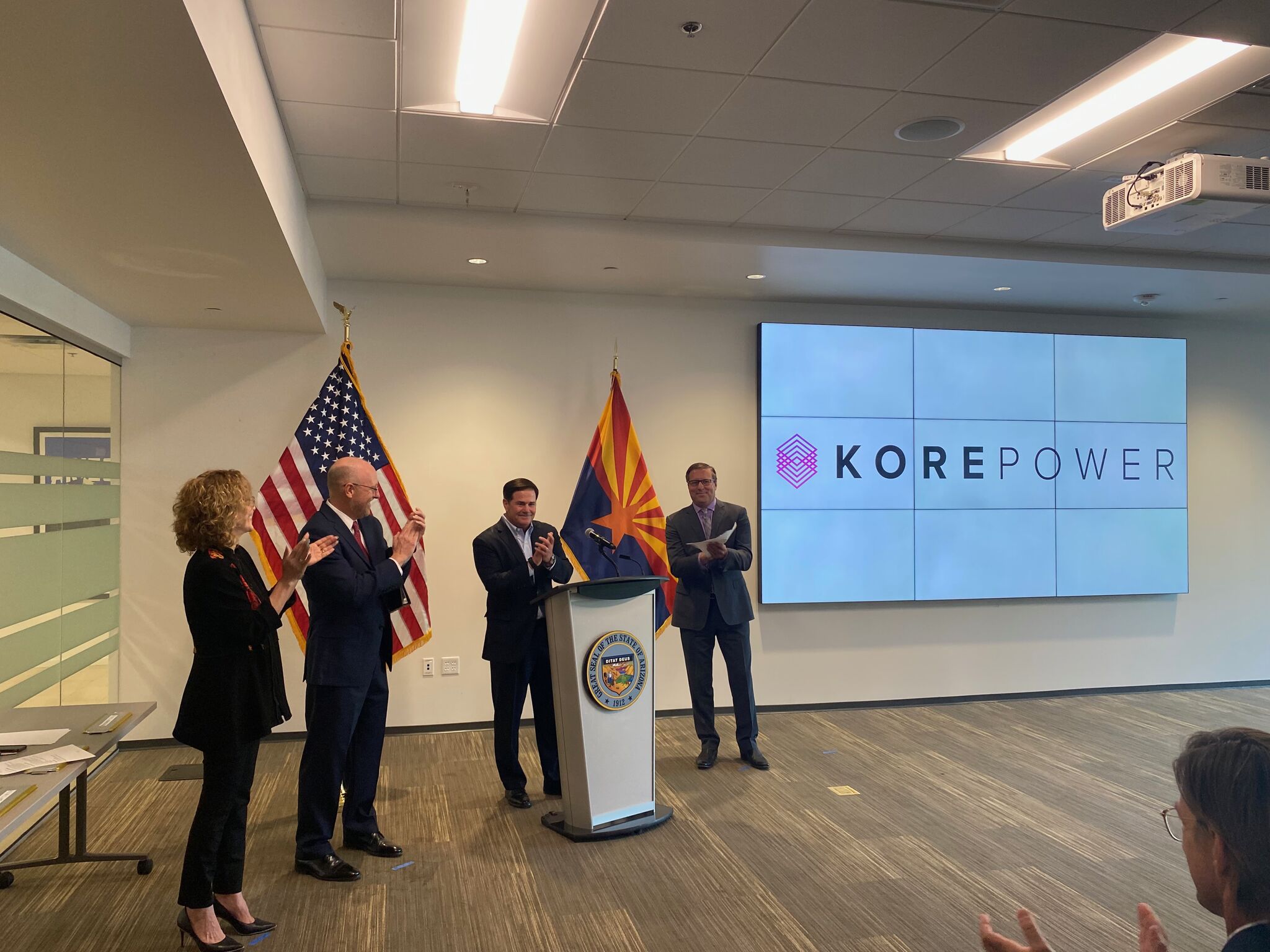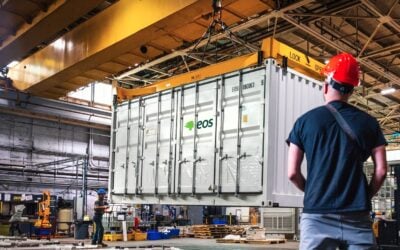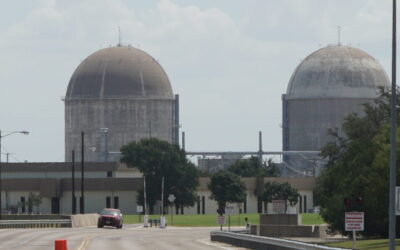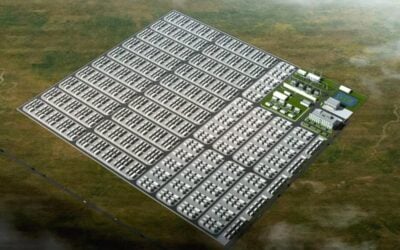
Governor Doug Ducey of Arizona expressed delight yesterday as lithium-ion battery and stationary storage system manufacturer KORE Power selected his state for the location of a new gigafactory.
The US company has chosen a site in Buckeye, Maricopa County, Arizona, for its one-million square foot lithium-ion battery production facility which will have an annual production capacity of up to 12GWh. Over 3,000 full-time staff will work there, making batteries for electric vehicles, grid storage and other applications. Many more direct and indirect jobs will be created and about 3,400 staff will work on the construction itself.
Enjoy 12 months of exclusive analysis
- Regular insight and analysis of the industry’s biggest developments
- In-depth interviews with the industry’s leading figures
- Annual digital subscription to the PV Tech Power journal
- Discounts on Solar Media’s portfolio of events, in-person and virtual
That should begin this year and the factory is scheduled to be up and running by the second quarter of 2023. KORE Power designs and makes energy storage systems (ESS) as well as battery cells of both lithium iron phosphate (LFP) and nickel manganese cobalt (NMC) chemistry, battery modules and packs in VDA format and its own battery management system (BMS).
Idaho-headquartered KORE currently has 2GWh of production facilities in China that it is ramping up to 6GWh of annual production. Founded in 2018 by CEO Lindsay Gorrill, KORE has always intended to build significant production capabilities within the US and in May said it had narrowed down site selection to three options in different US states.
“Arizona is thrilled to be selected as the home of the country’s first US-owned lithium-ion battery manufacturing facility. Not only will this facility create thousands of new jobs, it will position Arizona as an anchor in the global battery manufacturing supply chain,” Governor Ducey said yesterday.
State senior Senator Kyrsten Sinema also welcomed KORE Power to Arizona, hailing the thousands of local jobs the company would create, while also vowing to “continue supporting this vital industry” and stating that Arizona could take a leading position “on increasing America’s competitiveness in battery technology”.
The company said the facility, which it has dubbed the KOREPlex, will be a net zero emissions factory, a status it intends to achieve through strategic partnerships and co-generation with solar-plus-storage.
Facing up to US industry’s ‘big and urgent challenge’
In June, CEO Gorrill appeared at an online event hosted by the US Department of Energy on the need to develop advanced battery manufacturing supply chains within the country. With manufacturing and raw materials processing happening almost entirely outside the US and largely within China at present, US Secretary of Energy Jennifer Granholm said that the challenge facing her nation is “big and urgent”.
Gorrill said at that event that growth in demand for energy storage system (ESS) technology presents a massive opportunity worldwide. However, while the US has done fairly well in developing and supporting downstream OEM capabilities for finished products, there should be more focus on further upstream aspects of the battery industry, from cells to critical minerals supply.
“We needed a location for our factory that had a track record of supporting energy storage, a growing clean transportation sector, and a workforce that could deliver American-made battery technology that the supply chain so desperately needs,” Gorrill said in a statement yesterday.
“Arizona hit a home run. We’re fully committed to be a cornerstone of the state’s clean economy and we’re proud to bring advanced cell manufacturing home to the US.”
The company said it had conducted its site selection process based on proximity to related industry hubs for e-mobility and solar, finding a “pro-business tax and regulatory environment” and other factors.






